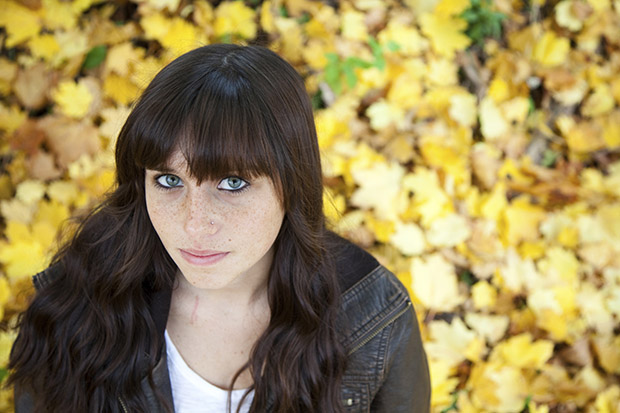Want to charge your creativity and boost your photo skills? Andrew Fildes shares seven great tips to help you quickly improve your photography.
01 CHANGE YOUR PERSPECTIVE
Most people see the world around them from a height of between five and six feet. To give your images a different look try shooting from different vantage points: stand on a chair, lie in the grass, climb a ladder, charter a hot-air balloon. Discover how different the World can appear simply by changing your position.
To give your images a different look try shooting from unusual vantage points. (Photo taken with a Lensbaby Double Glass Optic and Lensbaby 0.6x wide angle accessory. Photo by Lisa Smith studios.)
02 OFF CENTRE
Focus on the subject by half pressing the trigger, then recompose the shot, moving the subject off centre before you fully press the shutter release. If your camera has a focus or exposure lock button, work out how to use it. Photographs often look better when the subject is not bang in the middle of the frame.

While beginner photographers often put the main subject in the middle of the frame many images actually work better when the subject is off centre.
03 BE A SPECIALIST
Most successful photographers are specialists in one area of photography: landscapes, portraits, social documentary, etc. The longer you work in one field the more likely you are to get good at it – and more importantly to develop your own unique and identifiable style. It certainly worked for Claude Monet who spent much of his artistic life painting the same garden.
The longer you work in one field the more likely you are to get good at it.
04 READ THE MANUAL
Yes, I know, real men don’t read the manual. More fool you. There’s nothing quite so exciting as discovering that your camera can do something you didn’t know and then going out, trying it and loving the results.
Multiple exposures, slow night exposures, soft portraits and so on. Your average camera these days has hundreds of settings and you probably don’t know what half of them are. Work out what all the options mean, set it up to suit what you want to do and then make the routines second nature. Make it simple.
05 HANG YOUR WORK
Hang your photos on the wall at home (and at work if you can). You’ll soon get a feeling for the kinds of photos that engage and those that don’t. One of the great challenges of photography is creating images with long-lasting appeal. If you find you’re tired of a photo after a few days ask yourself why. What could you have done to make it more interesting? If nothing else, it’s a great way to show visitors what you do and convince your partner that there’s a point to spending all that money on camera gear!
06 KEEP A SCRAPBOOK
Not the frilly kind with buttons, locks of hair and fabric swatches – not that there’s anything wrong with that! I’m talking about a book that’s going to help you take better photos. Make a scrapbook and divide it into two parts.
First part: shots you would like to have taken – great photographs that inspire you. Make margin notes on why they are good and how you think they were made. Second part: your shots, with notes and sketches on how they could have been done better. If you don’t like paper and glue, you can always put together an electronic version.
07 PRACTISE, PRACTISE, PRACTISE
In the days of film, the big thing that separated pros and amateurs was that pros could afford to shoot more images. Now there’s no excuse – get a big storage card and blast away. Experiment with different settings, get the shot from four or five angles and work the subject. You can always discard the duds later on the computer. The key is to keep practising. Importantly, you should be able to focus quickly and obtain consistently well-exposed images, even in difficult lighting.
– Andrew Fildes
Excerpt from "51 Killer Photo Tips", first published in Digital Photography + Design (Feb-Mar 2010).
Have a photo tip you'd like to share? Add them to the comment box below.






